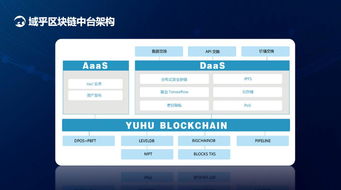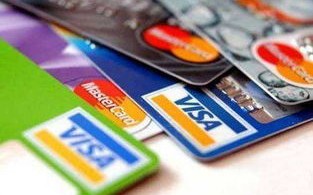Title: Exploring Blockchain Applications: A Competition Question Bank and Answers
Introduction to Blockchain Applications:
Blockchain technology has emerged as a disruptive force across various industries, offering solutions to numerous challenges by providing decentralized, transparent, and secure systems. With its potential to transform sectors ranging from finance to supply chain management, blockchain applications are continually evolving. In the context of competitions, exploring and understanding blockchain applications becomes crucial for participants to develop innovative solutions. This question bank aims to provide insights into various aspects of blockchain applications, offering both questions and comprehensive answers to aid participants in their learning journey and competition preparation.
Question Bank:
1. Finance and Banking Sector:
Question: How can blockchain technology revolutionize traditional banking systems?
Question: What are the advantages of using blockchain for crossborder payments?
Question: Explain the concept of smart contracts and their significance in financial transactions.
Question: How does blockchain enhance security and transparency in financial transactions compared to traditional methods?
2. Supply Chain Management:
Question: Discuss the potential of blockchain in optimizing supply chain processes.
Question: How can blockchain traceability ensure product authenticity and mitigate counterfeit issues in supply chains?
Question: Explain how blockchain facilitates realtime tracking of goods during transportation and logistics.
Question: What are the challenges associated with implementing blockchain in supply chain management, and how can they be addressed?

3. Healthcare Industry:
Question: How can blockchain technology improve the integrity and security of healthcare data?
Question: Discuss the role of blockchain in managing and securing electronic health records (EHRs).
Question: What are the privacy implications of using blockchain in healthcare, and how can they be managed?
Question: Explain how blockchain enables interoperability among different healthcare systems and stakeholders.
4. Voting Systems:
Question: Describe the potential of blockchain in revolutionizing voting systems.
Question: How does blockchain ensure transparency and immutability in electoral processes?
Question: Discuss the challenges and concerns associated with implementing blockchainbased voting systems.
Question: What measures can be taken to address security vulnerabilities in blockchainbased voting platforms?
5. Intellectual Property Management:
Question: Explain how blockchain technology can be utilized for managing intellectual property rights.
Question: Discuss the role of blockchain in ensuring the authenticity and ownership of digital assets.
Question: What are the legal implications of using blockchain for intellectual property management?
Question: How can blockchain mitigate issues such as piracy and unauthorized use of intellectual property?
Answers:
1. Finance and Banking Sector:
Answer: Blockchain technology can revolutionize traditional banking systems by eliminating intermediaries, reducing transaction costs, and enhancing security through cryptographic techniques. Transactions on a blockchain are transparent, immutable, and decentralized, offering greater trust and efficiency compared to centralized banking systems.
Answer: The advantages of using blockchain for crossborder payments include faster transaction settlement times, lower fees, enhanced security, and increased transparency. Blockchain eliminates the need for multiple intermediaries involved in traditional crossborder transactions, thereby streamlining the process.
Answer: Smart contracts are selfexecuting contracts with the terms of the agreement directly written into code. They automatically execute and enforce the terms of the contract when predefined conditions are met, without the need for intermediaries. Smart contracts streamline financial transactions by reducing paperwork, minimizing the risk of fraud, and ensuring faster settlement times.
Answer: Blockchain enhances security and transparency in financial transactions by providing cryptographic encryption, decentralization, and immutability. Each transaction is recorded on a distributed ledger, which is replicated across multiple nodes in the network. This makes it extremely difficult for any single entity to alter transaction records, thereby reducing the risk of fraud and unauthorized access.
2. Supply Chain Management:
Answer: Blockchain has the potential to optimize supply chain processes by providing realtime visibility, transparency, and traceability of goods throughout the supply chain. It enables stakeholders to track the movement of products from the point of origin to the end consumer, reducing delays, fraud, and inefficiencies.
Answer: Blockchain traceability ensures product authenticity by recording each transaction or event on an immutable ledger. This allows stakeholders to verify the origin, authenticity, and movement of products throughout the supply chain, thereby mitigating counterfeit issues and ensuring quality control.
Answer: Blockchain facilitates realtime tracking of goods during transportation and logistics by providing a decentralized ledger where all relevant parties can record and access transaction data. This improves supply chain efficiency, reduces administrative costs, and minimizes errors and delays associated with manual recordkeeping.
Answer: Challenges associated with implementing blockchain in supply chain management include scalability, interoperability, data privacy, and regulatory compliance. These challenges can be addressed through collaboration among stakeholders, the development of industry standards, and the use of privacyenhancing technologies such as zeroknowledge proofs and secure multiparty computation.
3. Healthcare Industry:
Answer: Blockchain technology improves the integrity and security of healthcare data by providing cryptographic encryption, decentralized storage, and immutable audit trails. Patient data stored on a blockchain is tamperproof and can only be accessed by authorized parties, enhancing data security and privacy.
Answer: Blockchain can manage and secure electronic health records (EHRs) by providing patients and healthcare providers with secure access to medical records. Patients have greater control over their health data, while healthcare providers can ensure data integrity, interoperability, and compliance with regulations such as HIPAA.
Answer: Privacy implications of using blockchain in healthcare include concerns about data confidentiality, consent management, and regulatory compliance. These concerns can be addressed through the use of privacyenhancing technologies, secure identity management systems, and adherence to data protection regulations.
Answer: Blockchain enables interoperability among different healthcare systems and stakeholders by providing a standardized, secure, and decentralized platform for sharing health data. This improves care coordination, facilitates medical research, and enhances patient outcomes.
4. Voting Systems:
Answer: Blockchain can revolutionize voting systems by providing a transparent, immutable, and tamperproof platform for conducting elections. Each vote is recorded on a blockchain, ensuring transparency and integrity in the electoral process.
Answer: Blockchain ensures transparency and immutability in electoral processes by recording each vote as a transaction on a distributed ledger. Once recorded, votes cannot be altered or deleted, ensuring the integrity of the election results.
Answer: Challenges associated with implementing blockchainbased voting systems include scalability, accessibility, voter authentication, and regulatory acceptance. These challenges can be addressed through the development of userfriendly interfaces, robust identity verification mechanisms, and collaboration with election authorities.
Answer: Measures to address security vulnerabilities in blockchainbased voting platforms include encryption, multifactor authentication, regular security audits, and the use of consensus mechanisms to prevent tampering or manipulation of election results.
5. Intellectual Property Management:
Answer: Blockchain technology can be utilized for managing intellectual property rights by providing a secure and transparent platform for recording ownership, licensing, and transfer of digital assets. Smart contracts can automate royalty payments and enforce licensing agreements, reducing disputes and ensuring fair compensation for creators.
Answer: Blockchain ensures the authenticity and ownership of digital assets by recording ownership records on a tamperproof ledger. Each transaction is cryptographically signed, timestamped, and verified by network participants, providing a verifiable chain of ownership.
Answer: Legal implications of using blockchain for intellectual property management include issues related to jurisdiction, copyright infringement, and enforcement of smart







